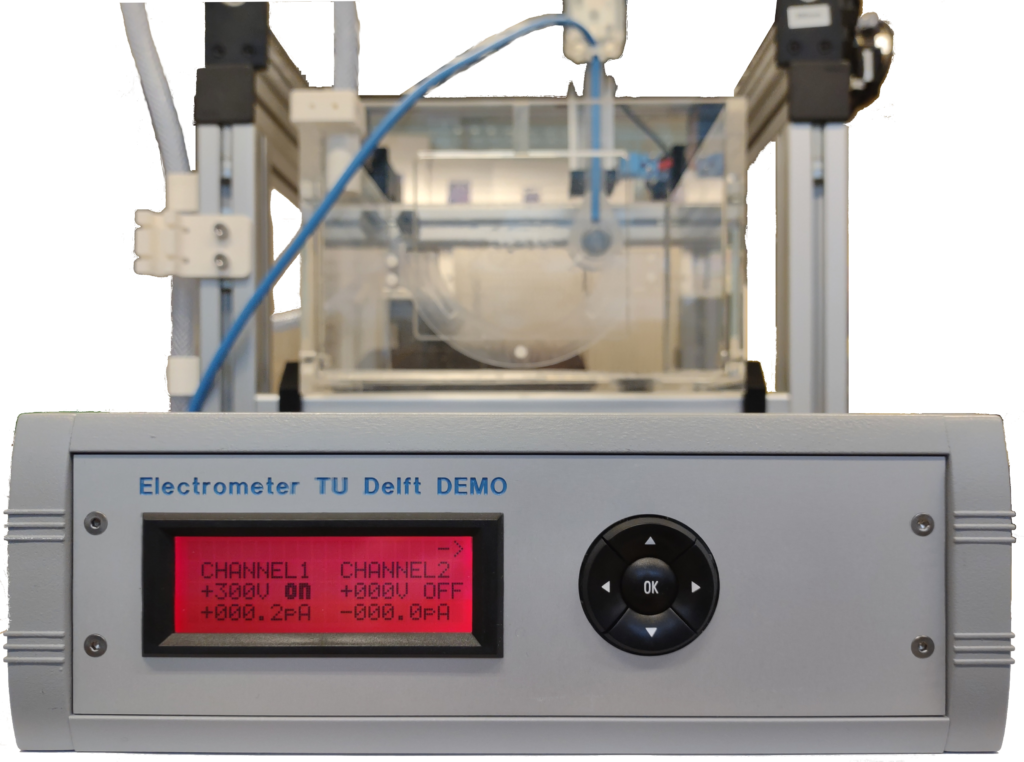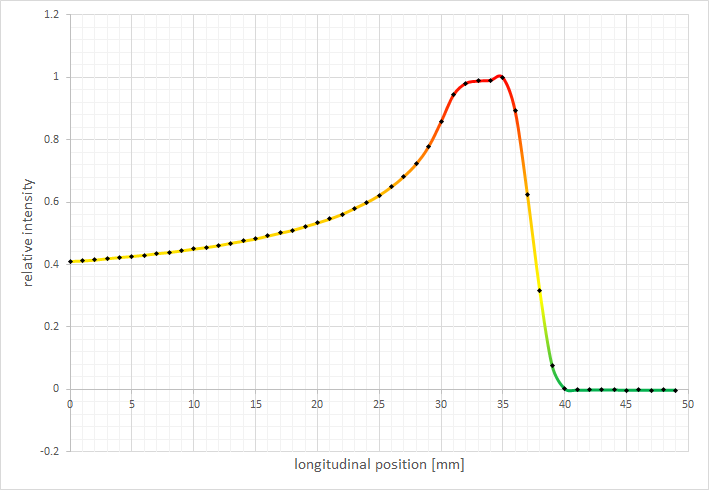Proton Beam Intensity Profile Measurement

This instrument is designed to measure the penetration depth of a proton beam in a water tank. Many protons will deposit their energy at the Bragg peak which can be located with this instrument. It can move a detector through the water and simultaneously measure a reference chamber outside the tank for the incoming proton beam and the sensor in the water tank.
The instrument synchronously measures the detector currents between 3.4pA and +/-800nA at a rate of 1kS/s in a single range with 98fA precision. After digital filtering the current noise floor is reduced even further. Charge is integrated at 1MS/s with a resolution of 6.25fC. The initial offset correction can be set with the same 98fA precision to minimize the integrated charge drift. The required bias voltage for the ion chambers can be set in a range of +/-400V at 1V steps or precisely at 0V when a synthetic diamond diode detector is connected. The user can manually move the sensor with the keypad or perform an automated measurement sequence from a computer.



Comments are closed.